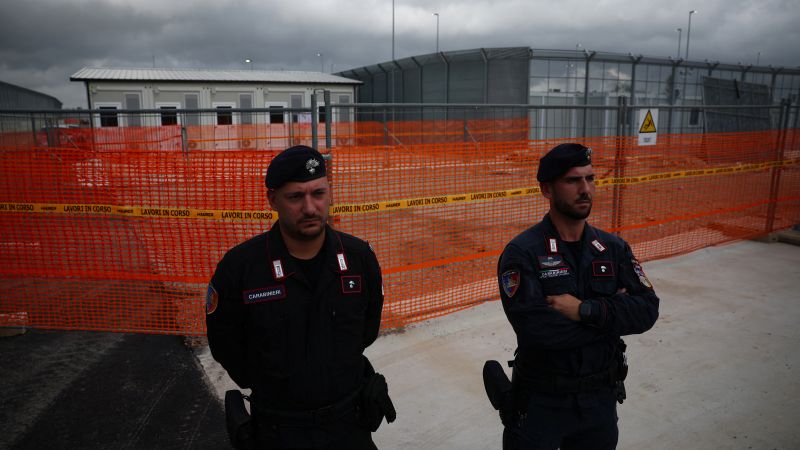European plans to send asylum seekers to offshore centers have been significantly impacted by a ruling from the European Court of Justice (ECJ). On March 1, 2024, the court determined that while Italy can continue to utilize its centers in the Albanian cities of Shengjin and Gjader, it must carefully evaluate which asylum seekers are sent there. This decision aims to prevent individuals from being returned to unsafe conditions in their home countries.
The ECJ emphasized that a country can only be deemed “safe” after undergoing “effective judicial review.” Furthermore, it asserted that safety must be demonstrable for all populations, particularly for vulnerable and marginalized groups. This ruling comes at a critical time, as new EU asylum regulations are set to take effect in June 2024, which would allow member states to establish their own lists of “safe” countries to expedite the asylum process.
The EU’s preliminary list includes countries such as Bangladesh, Colombia, Egypt, India, Kosovo, Morocco, and Tunisia. However, human rights organizations, including Amnesty International, have raised concerns about the safety of these nations for all individuals. In a statement from July 2023, Amnesty noted, “The proposed EU list of ‘safe countries of origin’ deems certain countries safe, yet up to 20% of applicants from these locations are recognized as refugees, indicating they are not universally secure.”
The ECJ’s decision was influenced by the cases of two Bangladeshi asylum seekers detained in Albania, who contended that returning to Bangladesh would pose a danger to their safety. This ruling may hinder the ambitions of several European nations exploring similar deportation schemes as the Italian-Albanian partnership, which has garnered both support and skepticism.
While this partnership has been seen by some as a potential model, a study from the University of Bari revealed that Italy’s scheme has already cost over €74.2 million (approximately $86 million). The study labeled the initiative as “the most costly, inhumane, and useless instrument in the history of Italian migration policies.”
Despite the criticism, European Commission President Ursula von der Leyen and former European Council President Charles Michel praised Italy’s 2023 agreement, which aims to streamline the EU’s approach to migration and asylum. The pact, described as “fair but firm,” intends to alleviate the pressure on countries that have historically received a high number of asylum seekers among the EU’s 27 member states.
The implications of the ECJ ruling on the future of detention hubs remain uncertain. Italian Prime Minister Giorgia Meloni criticized the court’s decision, claiming it undermines efforts to manage illegal immigration and safeguard national borders. “This is a development that should concern everyone,” Meloni stated. “It further reduces the already limited scope for governments and parliaments to regulate and administer migration.”
Currently, in Albania’s detention centers, the fates of nearly a dozen individuals from countries classified as safe, including Egypt and Bangladesh, are in limbo. As the landscape of European asylum policies continues to evolve, this ruling may serve as a turning point in the approach to managing migration across the continent.
